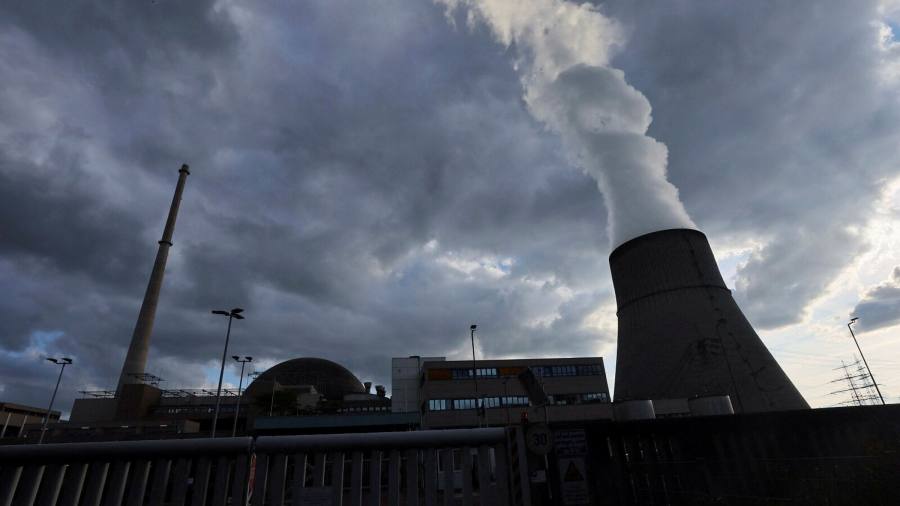[ad_1]
Germany’s nuclear power operators will continue to decommission the country’s last three remaining plants, even as the government weighs whether to keep the facilities running over the winter.
E.ON, RWE and EnBW confirmed they had not procured additional fuel to extend the life of the Isar 2, Emsland and Neckarwestheim plants beyond the end of the year, when they are legally-mandated to close.
“Based on the existing legal situation, we assume that our nuclear power plant will still have to be shut down at the end of this year,” EnBW’s finance chief Thomas Kusterer said. “We are preparing for this accordingly.”
EnBW could only keep its Neckarwestheim facility operational for a “few more weeks” beyond 2022 on current fuel reserves, Kusterer said.
The German economics ministry is deciding whether to extend the mandatory closure date. “Whether we need fuel rods at all also depends, of course, on how long this extension will be for,” Kusterer said. “We simply have to wait for the results and see what happens.”
The German government, a coalition between the Social Democrats, liberal FDP and anti-nuclear Greens, had committed to shut down all of Germany’s remaining nuclear power stations by the end of this year.
But in recent weeks, the FDP has joined calls by the opposition Christian Democrats to keep the plants running beyond the end of the year, in the light of Germany’s looming energy crunch.
In mid-June Russia drastically reduced its gas supplies to Germany via the Nord Stream 1 pipeline under the Baltic Sea, hampering the country’s efforts to stock up on gas ahead of the winter heating season.
The government is currently conducting a “stress test” of the German electricity system, to see if it can continue to function even “under aggravated conditions”. Many politicians in Berlin believe that it might decide to put the country’s nuclear exit plan on hold based on the results of that test.
Markus Krebber, chief executive of Essen-based RWE, said a choice had to be made “politically” before any extension plans could be put in place, “and after the decision, we will move in the direction that the politicians want”.
Leo Birnbaum, chief executive of E.ON, said the group had been “preparing for years, from a technical and organisational perspective”, for the dismantling of its nuclear power station and would continue to do so unless and until instructed otherwise.
The executives’ comments came as Klaus Müller, the official in charge of Germany’s energy supply, played down the importance of keeping the country’s nuclear plants running to compensate a reduction in gas from Russia.
“Germany imports gas as a feedstock for the chemicals industry and to produce heat. And nuclear energy doesn’t help us with either of those things,” Müller told the Financial Times.
“We should really focus the debate on how we avoid a gas shortage. All our energies should be directed to that.”
He said the stress test by the government had been designed in part because southern Germany, where the Isar 2 plant was located “has not made enough progress in expanding its power supply network.”
[ad_2]
Image and article originally from www.ft.com. Read the original article here.

